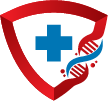Leverage the power of patient-centered, systems-based medicine with the Fellowship in Anti-Aging, Metabolic Medicine (FAAMM), which offers cutting-edge clinical training in a flexible and personalized format – accessible both in-person and on-demand. Designed for innovative practitioners, the interactive FAAMM program combines the latest research and evidence-based interventions with practical implementation strategies. From advanced hormone interventions to groundbreaking neurological treatments, our curriculum equips health professionals with the expertise to craft treatment plans tailored to meet the evolving needs of each patient.
Become a part of the FAAMM program and position yourself among the trailblazers poised for success in the rapidly evolving realm of modern medicine.
Why This Fellowship?

Access to world-class clinical educators who lead and guide fellows throughout fellowship.

Systems-biology approach to care that addresses the interconnected nature of health and targets root causes of disease & optimizes wellness.

Designed to be personalized around your specific schedule and preferred pace.

A uniquely comprehensive clinical scope that encompasses anti-aging, regenerative, traditional therapeutics and more.

Training that includes a complete professional skillset including medical technology uses, data analysis, practice management, legal considerations, and more.
Fellowship Curriculum Structure
Modules can be completed conveniently in-person or online, offering the flexibility to learn at your own pace. Both learning formats deliver the same exceptional education experience of the highest quality. To ensure a comprehensive learning journey and maximize knowledge gained from the Fellowship, participants can take advantage of optional opportunities such as webinars, academic articles reviewing the latest standard of care guidelines, and engaging assignments they can submit for expert faculty feedback. These resources are designed to enhance the learning process and provide Fellowship candidates with a well-rounded clinical framework that empowers them to become leaders in their specialty.
Core Modules (In-Person and On-Demand)
Discover detailed information about each module by selecting the “Learn More” option beside the learning format of your preference. While the Fellowship modules can be completed in any order, we highly recommend starting your educational journey with Module I, as it establishes a solid foundation for the program’s subsequent modules.
Module I: Advanced Endocrinology: The Hormonal Symphony
A core module in the Fellowship, it is critical in helping to develop the necessary skills to treat complex patients.
Module II: Cardiology
This module focuses on the causes and mechanisms of hypertension, diabetes, coronary artery disease and metabolic syndrome, and how these conditions are interrelated and connected.
Module III: Brain Optimization for Longevity
This module details the neuropsychological components of a systems biology approach to the brain and peripheral nervous systems.
Module IV: Gastroenterology: The Crossroads of Health
This module explores new therapies available to enhance GI health, along with celiac disease and gluten sensitivity, the gut-immune-brain connection, irritable bowel syndrome (IBS), hormones and diet, and other digestive and glandular disorders.
Capstone Modules (In-Person Only)
Module V: Clinical Protocols: A Systems Biology Approach
This module explores how to evaluate and treat common patient presentations by synthesizing best practices from Modules I through IV. This module offers the most up-to-date information on physiological interrelationships for health care providers who are on the frontlines with patients.
Elective Modules (On-Demand Only)
Module VI: Clinical Strategies to Optimize Metabolic Resiliency, Immunocompetence and Biotransformation (Part A)
This module will review the various etiologies of modern-day living that are skyrocketing the incidence of immune and mitochondrial dysregulation and inflammation leading to the clinical manifestations of autoimmune disease, chronic fatigue syndrome, pain, and sleep dysregulation.
Module VII: Clinical Strategies to Optimize Metabolic Resiliency, Immunocompetence and Biotransformation (Part B)
This module will focus on the adaptive immune system dysregulation and autoimmune disease, inflammaging and metaflammation and drivers of system wide inflammation.
Module VIII: Longevity Medicine and Bio-Hacking-Optimizing Lifespan
This module is designed to review the most advanced concepts around maximizing human life span, health and vitality.
Continuing Medical Education (CME) Credit
Fellowship participants are eligible to claim CME credits, available through George Washington University. We offer a diverse range of curated academic activities to allow a customizable learning experience. Please note that the total of CME credits you can claim will depend on the number of activities completed, and CME hours may vary across different modules. For more details, please refer to the individual module pages linked above.
Frequently Asked Questions
Our fellowship program is thoughtfully designed for a wide array of medical professionals including physicians, nurses, physician assistants, nutritionists, pharmacists, chiropractors, and healthcare professionals with a Bachelor of Medicine, Bachelor of Surgery, and DDS degrees. Building a new health care paradigm requires an equipped community of healthcare professionals of all roles and backgrounds. Our fellowship program reflects that reality.
One of the many advantages of the fellowship program is the fact that each participant can work at an individualized pace. While the average length to complete the fellowship is 18 months, and our educational advisors recommend finishing within 2 years, the program can be completed at any pace which suits the fellow best.
While many programs provide specialized training through fixed topics and approaches, the FAAMM is centered on outcomes-focused, patient-centered care alone. This means that while our program is grounded in a systems-biology approach to medicine, our fellows are able to analyze a wide array of clinical methods to best provide personalized and strategic care to a broad variety of patients.
Through a highly innovative and personalized learning environment, this fellowship allows you to strategically integrate the tools and techniques best suited for your specific practice. In analyzing the latest and most advanced clinical education available, our fellows are equipped to serve as leaders at the forefront of the chronic illness crisis--building strong and reliable medical practice capable of effectively managing a growing patient population.
The Fellowship provides an in-depth examination of a wide variety of critical clinical topics including endocrinology, cardiology, neurology, gastroenterology, mitochondrial health, autoimmune diseases, weight management, cancer therapies and more.
